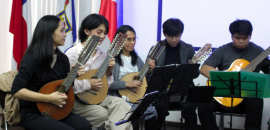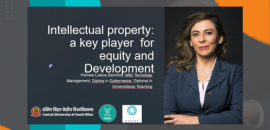You are here
"Academically, USACH has national and international recognition and weight,” says Karina Ceballos, mobility student
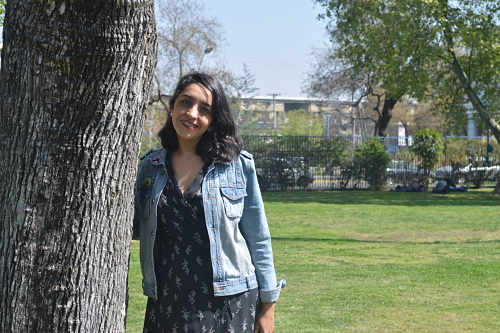
From the city of Cadiz, Spain, comes Karina Ceballos, for a three-month internship in the Master's Degree in Social Sciences program, specializing in Civil Society Studies, at our Institute for Advanced Studies (IDEA).
Before living in Spain, she worked in the Women's Center in Coyhaique as a psychologist, "I worked on issues of partner violence against women, and later specialized in art therapy, as another way of healing," says Karina.
Later, while she was working, she analyzed the possibility of continuing studying, “I began to feel that I was missing more academic resources and specialization,” so she looked for options in Spain and finally chose the Master’s in Gender, Identities and Citizenship. Within the same master’s program, the option arose to do an internship outside of Spain, "I looked for universities with partnership agreements with the University of Cadiz, and that had affinity with my area of research, and I found USACH. I asked if there was a specialist, then I sent a letter of motivation that went through an evaluation committee before I was accepted, which I considered very responsible."
Karina had other options in Colombia, but finally chose USACH,” academically, USACH has national and international recognition and weight,” stresses Ceballos.
Regarding her research internship, she is working with professor Kathya Araujo,” I am working on the topic of masculinities and the impact that the fact of having been victims of violence in childhood can have on men and how somehow it is made invisible due to machismo itself, of this impossibility for men to better manage their emotions,” she says.
Within her expectations about the research, she comments that the topic has international projection, “research is generally on gender issues that do not leave the academic world. I would like to generate a citizen dialog among men about their own stories, so they feel that they can do things differently, and this topic goes beyond a country, it is a global problem,” stresses Karina. She also adds, “ I like how work is done at USACH, it is very critical and several authors can be approached.”
For Karina, the possibility of being in Chile enriches the academic work,”with the integrated international factor new possibilities of doing things differently and other realities provide you with more intellectual resources. Sometimes, from adversity you start to generate new resources, you become more creative, you interact more and your brain starts to work differently.”
In parallel to her studies, Karina has looked for other complementary activities in the university,”USACH has many activities and invitations in different topics, the array of workshops is extensive, ceramics and gender are the ones that interest me the most.”
“It was a very good decision to come here for what I want to do later, which is to continue with a doctorate degree, I am happy. Academically, I think it may time to put this in my resume, and also because of the breadth of contacts and networks,” concludes Ceballos.
News
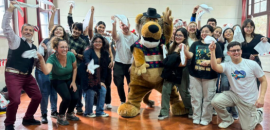 International students learn cueca with Usach Without Borders and Department of Cultures and Arts
International students learn cueca with Usach Without Borders and Department of Cultures and Arts
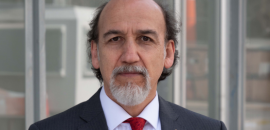 Rector Vidal to join the Governing Board of UNESCO's International Institute for Higher Education
Rector Vidal to join the Governing Board of UNESCO's International Institute for Higher Education
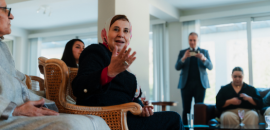 Students visited the Ambassador of Morocco to learn about the country's diplomatic work and culture
Students visited the Ambassador of Morocco to learn about the country's diplomatic work and culture


